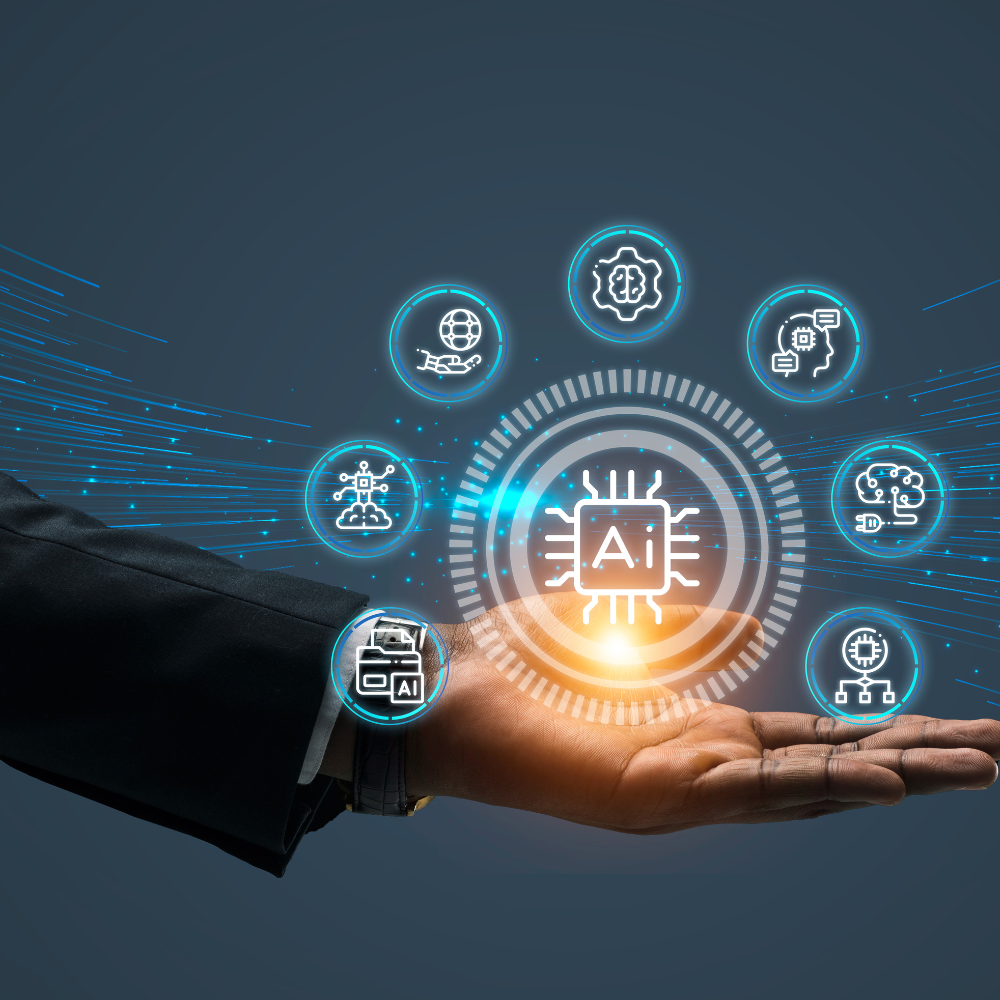Unleashing the power of sales intelligence: A gam

In the fast-paced world of B2B marketing, staying ahead of the competition requires businesses to adopt innovative strategies. One such game-changer is Artificial Intelligence (AI), a technology that has permeated various industries, reshaping the landscape of marketing. In the B2B realm, AI is proving to be an invaluable ally, offering businesses unprecedented insights, efficiency, and effectiveness.
- Precision Targeting:
AI-driven tools have redefined how businesses identify and target their audience. Through sophisticated algorithms, AI analyzes vast datasets to identify patterns and trends, enabling marketers to create highly targeted campaigns. This precision targeting ensures that marketing efforts are directed towards the most promising leads, increasing the likelihood of conversion.
- Personalized Marketing Campaigns:
Personalization is no longer a luxury but a necessity in the B2B space. AI empowers marketers to create personalized campaigns by analyzing customer behavior, preferences, and past interactions. This level of customization enhances the customer experience, fostering stronger relationships and increasing brand loyalty.
- Predictive Analytics:
One of the most significant contributions of AI to B2B marketing is its ability to harness predictive analytics. By analyzing historical data, AI algorithms can predict future trends and customer behavior. This foresight enables businesses to anticipate market demands, optimize inventory, and tailor their marketing strategies accordingly, ensuring a proactive rather than reactive approach.
- Enhanced Lead Scoring:
Identifying high-quality leads is a perpetual challenge in B2B marketing. AI-driven lead scoring tools analyze a multitude of factors, including online behavior, engagement metrics, and demographic data, to assign scores to leads. This automated process allows sales teams to prioritize their efforts on leads with the highest likelihood of conversion, streamlining the sales funnel and increasing overall efficiency.
- Chatbots and Virtual Assistants:
AI-powered chatbots and virtual assistants have revolutionized customer engagement. In the B2B context, these tools provide instant responses to customer queries, assist in product selection, and guide users through the purchasing process. The availability of round-the-clock support enhances customer satisfaction and ensures that businesses are always accessible to their clients.
- Content Creation and Optimization:
Producing compelling content is a cornerstone of B2B marketing. AI tools, equipped with Natural Language Processing (NLP) capabilities, can generate high-quality, relevant content at scale. Moreover, AI helps in optimizing content for search engines, ensuring that businesses rank higher in search results and attract organic traffic.
- Dynamic Pricing Strategies:
AI plays a pivotal role in pricing strategies by analyzing market conditions, competitor pricing, and customer behavior. Dynamic pricing, facilitated by AI algorithms, allows businesses to adjust prices in real-time, maximizing profitability and competitiveness.
- Fraud Detection and Security:
In the digital age, cybersecurity is a paramount concern for businesses engaged in B2B transactions. AI applications can detect unusual patterns and anomalies in data, flagging potential security threats and minimizing the risk of fraudulent activities.
In conclusion, the integration of AI into B2B marketing strategies has ushered in a new era of efficiency, precision, and innovation. From targeted campaigns to predictive analytics, AI empowers businesses to navigate the complexities of the modern market landscape. As the technology continues to evolve, its impact on B2B marketing is likely to deepen, offering businesses unprecedented opportunities for growth and success. Embracing AI is no longer an option but a strategic imperative for businesses aspiring to thrive in the dynamic and competitive world of B2B marketing.